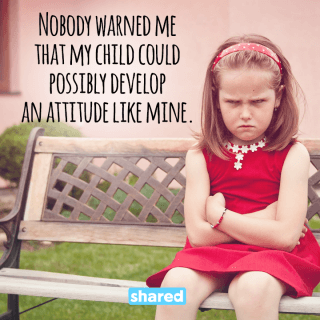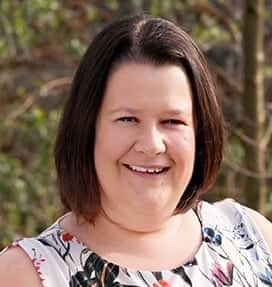I saw this picture on Facebook today and it made me smile. So often, people recognise their own  behaviours, values and attitudes in others (Carl Jung would argue that you can only recognise in others what you see in yourself – but that’s a story for another blog).
behaviours, values and attitudes in others (Carl Jung would argue that you can only recognise in others what you see in yourself – but that’s a story for another blog).
When you spend a lot of time with someone it’s no surprise that you start to pick up some mannerisms; who you spend time with influences the person you eventually become. Jim Rhon says:
“You are the average of the five people you spend the most time with”
Whilst spending time with certain people influences what you spend time on (e.g. Football, shopping, CandyCrush, reading etc), your unconscious mind is always listening and absorbing things. So it stands to reason that whatever your family (or friends) talk about, value, are passionate about, their views, attitudes, and beliefs are often unconsciously scooped up (particularly when you are young) – often without much or any filtering at all (e.g. how useful is that). Whilst the young lady in this picture appears to be cross and disgruntled for some reason (I would guess she has also deliberately broken rapport with the person she’s looking at – without evening knowing what that is!) and some might argue she might have learn’t a particular set of behaviours that she thinks may get her a particular outcome – today I want to talk about what might be motivating her.
What are Values?
Values are what are important to us. They are what motivates us, what drives us. Values are stored at an unconscious level and are a filter of the unconscious mind (so when information comes into our minds via our senses, it’s one of the filters that determines what is deleted, distorted and generalise. if you’re not sure what I mean by these terms). If for example you have a strong Value around fairness (or unfairness) and information comes in, your mind filters this – it might pay particular attention to a certain piece of information, yet completely disregard something else. When you ask people to list their values – people will often tell you what they think they are, but Values are actually held at the unconscious level – unless someone has followed the specific process to elicit values (which we teach on Master Practitioner courses) the list they are giving you is at best a guess, or perhaps even their aspirational values. The great thing about NLP at Masters level, is that not only can we elicit them, understand someone’s Number 1 value (the most powerful one) in a given area of their life, we can then change someone’s values in order to ensure they are helping them get, be and achieve what they want – often when someone sets a goal, but they don’t align their values behind it – it’s their values that pull them off course (because the unconscious values are driving your behaviour) – anyhow, I digress …
Where do Values come come?
This is the interesting thing when it comes to children and partly explains why children are often like their parents.
Morris Massey (a sociologist & professor in the 60s/70s) wrote a book about Values and he said that between the ages of 0-7 years old children are like sponges, they have little conscious thought, they simply soak up the values of their surroundings – often family, schools etc – he referred to this stage as the ‘Imprint years’. From the ages of 7-13 years old (the ‘Modelling’ years) children start to look outside the family unit to role models, film stars, pop stars, idols – and they start to borrow perceived values – this is particularly important if we consider this ages range start to spend a lot of time on the internet. Ages 14 -21, the Socialisation years, is where people look outside the family unit to peers, girlfriends/boyfriends and start to borrow values from their peers. It’s also when they start to actively reject values – which we know as the teenage years! William James added another category (people aged 21-35 – which is all about business persona).
interesting, isn’t it? Values can also change if someone has a significant emotional event – but I’ll leave this for another day. What I love is eliciting someone’s values during a 2 day breakthrough and enabling people the opportunity to ‘tidy them up’ and actually consider if their values are serving them, or if they’d like to make some changes – it’s such a powerful part of the breakthroughs.
So ….
It’s quite natural for parents to recognise themselves in their children and might well be in part because your child has picked up some of your values (and of course it’s likely as kids grow up, they’ll start to recognise parts of themselves in their parents). The point I guess is about noticing that we pick stuff up all the time and using this new knowledge to help aid our understanding of those around us.
___________________________________________________________________
Laura is passionate about helping people realise their potential, and achieve the results they deserve. She believes, if you change your thinking, you can change your results. If you’d like to find out more about Unleash Your Potential, you can check out our NLP courses and coaching options, and link up with us via our Facebook page, follow us on Twitter or link up with Laura via LinkedIn. You can of course also email us at: [email protected]


